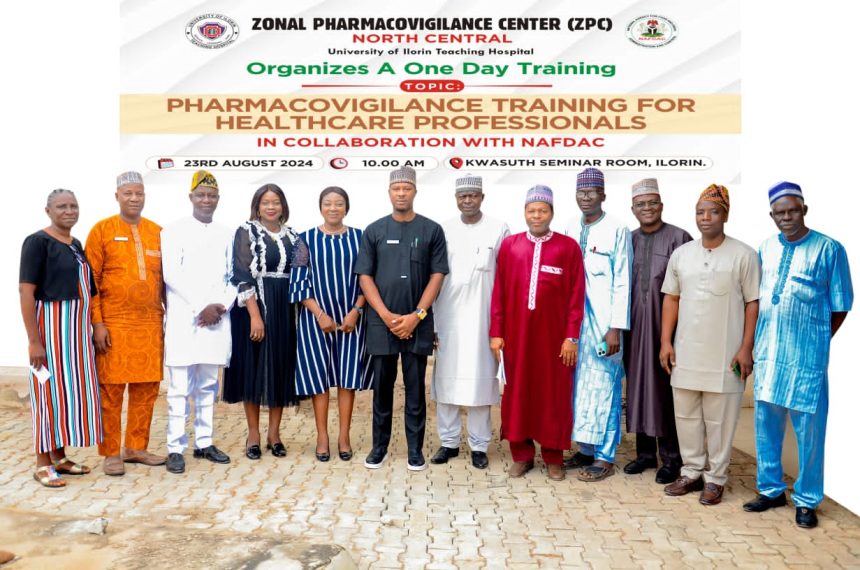From Taiye Joseph, Ilorin
Healthcare professionals in Kwara State, including doctors, nurses, and pharmacists, have undergone specialized training to enhance their ability to monitor and report Adverse Drug Reactions (ADRs), the unintended harmful effects of certain medications.
This development was announced in a statement by the Press Secretary of the Kwara State University Teaching Hospital (KWASUTH), Fatima Baraje Ahmed, and shared with journalists in Ilorin.
The training, organized by the University of Ilorin Teaching Hospital (UITH), in collaboration with the National Agency for Food and Drug Administration and Control (NAFDAC), aimed to boost patient safety and ensure the effectiveness of medications used in the state.
Held at the KWASUTH Seminar Room in Ilorin, the one-day program focused on equipping healthcare workers with the necessary skills to actively participate in pharmacovigilance, the practice of monitoring the effects of drugs post-licensing to ensure their safety.
Pharmacist Ndabo Nathan, NAFDAC’s State Coordinator, emphasised the agency’s dedication to ensuring that all medical products are safe and of high quality for public use.
He noted that while no drug is entirely free from side effects, documenting and analyzing these effects is crucial.
“By reporting adverse drug reactions, healthcare professionals are not only safeguarding their patients but also contributing to the overall safety of medications in circulation,” Nathan said.
Dr. Abdulraheem Malik, Executive Secretary of the Hospital Management Bureau and Chairman of the occasion, stressed the need to extend pharmacovigilance efforts to the informal healthcare sector, where many ADRs often go unreported.
He urged doctors to include their names and contact details on prescriptions to facilitate follow-up by pharmacists, especially in cases of ADRs.
Dr. Malik also advocated for the adoption of electronic reporting systems to make the process more efficient and less burdensome for healthcare workers.
He underscored that pharmacovigilance is a critical public health strategy essential for providing safe and effective healthcare in Nigeria.
The Chief Medical Director of the hospital, Dr. Ahmed Bola Abdulkadir, represented by Dr. Obalowu Ismail, the Deputy Chairman of the Medical Advisory Committee, described the training as long overdue.
He highlighted the need for NAFDAC to establish robust structures for the proper monitoring and tracking of ADRs and called for more effective regulatory activities to ensure that ADRs are reported and addressed appropriately across hospitals in the state.
Pharmacist Elegbede Busayo, a key facilitator from UITH, emphasised that the training addresses a significant gap in ADR reporting, which has been a challenge in Kwara’s healthcare sector.
She noted that many healthcare practitioners lack the expertise needed to report ADRs accurately, leading to under-reporting and potential risks to patients.
“By improving education on pharmacovigilance, our healthcare professionals are now better equipped to monitor medication safety, thereby reducing the incidence of adverse drug reactions,” Busayo said.
She further stated that the initiative is expected to foster a strong culture of pharmacovigilance in Kwara State, ultimately ensuring safer medication use and better health outcomes for the community.
The training also highlighted the importance of continuous professional development for healthcare workers, stressing that up-to-date knowledge and skills in pharmacovigilance are vital for safeguarding patients’ health.







